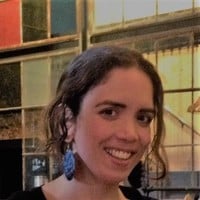Myroslava Tataryn

LSHTM Almuni, MSc PHDC 2010. Passionate about disability rights. Over a decades’ experience with NGOs working to ensure access to health and social services for people with disabilities.
Location Canada
Activity
-
I think its very important for us not to create a "hierarchy of disability". All access stuggles areimportant, as lack of access to services often means that people's fundamental rights arent being realised. It doesnt mean that all organisations can ensure universal accessibility immediately, but we should take care to avoid framework where certain access need...
-
Thank your raisinh of tese north-south issues. Crucial questions!
-
Myroslava Tataryn replied to Denise Ead
@RuperthKamtsendero true that CBM programmes are not rolled out comprehensively, but I hope that they might have ideas of other supports that might be available in other districts! I know it is not easy, I'm familiar with how remote many of the rural areas are in Malawi. I wish you well with your very important work!
-
I agree! My parents were also key to my being able to go to a good school and pursue a professional career path instead of falling into the trap of common mis-perception that being unable to walk (until 7yrs, in my case) one cannot succeed academically.
-
Disability is linked with poverty in both low-income and high-income countries! But social support systems are one of the ways that the downward spiral of poverty can be stopped or reduced, they are
not the cause of the spiral! -
Very true! Yet, this should not make us complacent to the fact taht gender inequality can also be very detrimental to men. In cases where men are victims of sexual violence they face tremendous stigma and may never manage to get appropriate health (including mental health) care. Some studies have shown that although women with disabilities are at greater risk...
-
Myroslava Tataryn replied to Frank Mutebi
@FrankMutebi Many African governments are starting to take notice of disability within their policies, largely thanks to the advocacy and activism of national Disabled Persons Organizations (or DPOs). There is also some progress being made at the level of the African Union. If you mention which country you're based in it may help you to find other disability...
-
Myroslava Tataryn replied to Walter Kilama
Greetings @WalterKilama you may be particularly interested in the part of the course looking more closely at disability and humanitarian emergencies!
-
Myroslava Tataryn replied to Julia Daniels
@JuliaDaniels fascinating PhD topic you have chosen! In my case, will be particularly interesting to learn more about your work around ableism & motherhood.
-
Myroslava Tataryn replied to Aishath Looba
Agreed, 'disabled person' is the preferred term in the UK and increasingly so in other European countries (in English). But when moving across cultures and contexts, best to remain open to what is being used by disability rights proponents in each specific context.
-
Myroslava Tataryn replied to Carla Branco
It is true that many people and organisations are adopting the term 'disabled people' over people with disabilities. But it is not the case in all countries. Given that the course is aiming at a very diverse international audience, we used 'persons or people with disabilities' because it is what is used in the UN Convention on the Rights of Persons with...
-
Myroslava Tataryn replied to Denise Ead
@RuperthKamtsendero I encourage you to find out more about the role of CBM and its partners in Malawi as CBM has many projects supporting children with disabilities through community based rehabilitation in Malawi.
-
Myroslava Tataryn replied to Renée Jopp
@RenéeJopp Thank you, Renée! Yes, finding a way to discuss health and health care provision from a rights-based perspective is very important. I'm convinced that it needs to be done in order to advance both disability rights fields and health care/systems fields.
-
Myroslava Tataryn replied to Frank Mutebi
@FrankMutebi Thank you for your comment, Frank! Are you and/or your wife part of any organisations of disabled persons in your community or your country? This may be a way to get support from peers who may have similar experience and are also fighting to end prejudice and build more inclusive communities....
-
Myroslava Tataryn replied to Helen Bokea
@HelenBokea Traffic accidents are a leading cause both of death and disability in many countries. HI (Humanity and Inclusion, formerly Handicap International) has projects specifically related to Road Safety in a few countries in Asia, sub-Saharan Africa and the Carribean but a lot more needs to be done! It's also an issue that has not received widespread...
-
Myroslava Tataryn replied to Enalla Banda
Because disability encomasses such a very vast and diverse range of experiences, particularly when we look across countries and cultures, I think there is always more that we can learn! Thanks for joining the course!
-
Myroslava Tataryn replied to Ike Ogams
The principle of inclusive livelihoods/economic opportunities is there in the CRPD but now individual agencies providing livelihood capacity building (whether at governmental UN, INGO or NGO levels) need to take the responsibility for looking at their own programming, examining what might make it hard for people with disabilities to access their projects, and...
-
Myroslava Tataryn replied to Israel Balogun
I echo Islay's comments, and hope that you will find the piece on humanitarian crises an interesting part of this course. There is change taking place within the humanitarian sector. Several agencies (governmental and non-governmental) have signed up to the Charter on the Inclusion of Persons with Disabilities in Humanitarian Crises...
-
Hello, eventhough people with disabilities may be at greater risk of ill health largely due to barriers to access information & services, poverty, etc. let us not equate disability with ill-health automatically.
Regarding livelihoods, in any discussion about inclusive livelihood, it is very important to consider the concept of 'reasonable accomodation'....
